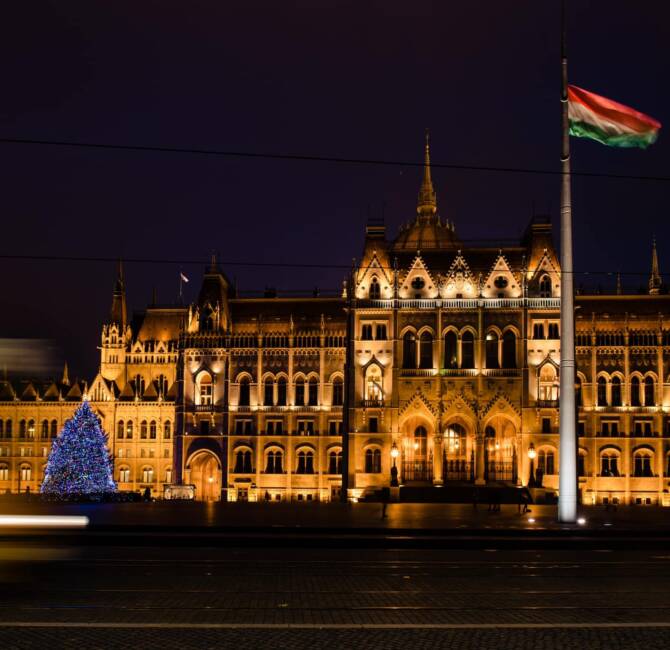Hungary, Budapest – Expanding the European Union’s list of Eastern partner countries is of strategic importance to the Visegrád Group, Hungary’s foreign minister said on Thursday.
Speaking at a press conference after a meeting of V4 leaders, European Commission and Estonian officials and politicians from the Eastern Partnership countries in Budapest, Péter Szijjártó urged the adoption of a resolution aiming for the “most ambitious and boldest possible” alliance-building strategy at the next EU-Eastern Partnership summit in Brussels.
The V4 will also push to ensure that spending on such strategies is not reduced in the EU’s next funding cycle, Szijjártó said.
The minister said the EU’s Eastern partners could help curb mass migration to Europe and aid the bloc in more effectively reaching Far Eastern markets. These countries can also help prevent the spread of extremist ideologies that fuel terrorism, he added.
Speaking about the achievements of the Eastern Partnership, Szijjártó highlighted the visa waivers given to Georgia and Ukraine and the Ukraine-EU association agreement which enters into force on Friday.
As regards energy security, Szijjártó said linking the southern gas corridor with central Europe would have been impossible without the continent’s Eastern partners.
Polish Foreign Minister Witold Waszczykowsky expressed hope that EU member states would support deepening ties with the Eastern Partnership countries at a November summit in Brussels.
Pavlo Klimkin, foreign minister of Ukraine, called the proposal to deepen EU-Eastern Partnership relations a “sign of European solidarity”. He also said the entry into force of the association agreement would be “an important moment” because “we are on our way to a European future in spite of Russian aggression”. This is the only path that can lead to European Union membership for Ukraine, Moldova and Georgia, he said.
Slovak foreign ministry state secretary Lukas Parizeksaid the November summit would provide both sides with a vision of how to further advance ties. The EU must make clear the reforms it expects the Eastern Partnership countries to undertake, he said, adding that six partner countries had already reassured the bloc of their intention to introduce the necessary reforms.
Azeri Foreign Minister Elmar Mammadyarov said his country was working with the EU in five specific areas, adding that talks on a strategic partnership agreement were ongoing. He said EU-Azeri cooperation would focus mainly on trade, education and advancing democracy, adding that the southern gas corridor, which could provide 20 percent of the EU’s gas reserves, would also play an important role.
Czech foreign ministry state secretary Petr Gajduseksaid his country aimed to boost “practical” cooperation between the EU and its Eastern partners, adding that the partnership would have to lay out a “far more broad” plan for moving forward at the conclusion of the November summit.
Georgian Foreign Minister Mikheil Janelidze noted that his country has been a partner of the EU for close to four years. The partnership allows Georgia to place its products on the single market and its citizens have visa-free entry to the EU. The end goal, however, is full-fledged EU membership, he added.
Szijjártó and Waszczykowski against EU’s use of ‘double standards’
Hungary rejects the European Union’s use of “double standards” against any member state, said Péter Szijjártó.
“We reject the European Union applying double standards against any country, and unfortunately we can see the European Commission’s strong use of double standards in the case of Poland. This is unacceptable,” Szijjártó said in response to a question about EU-Poland relations after talks between EU and Eastern Partnership country officials.
It would be preferable if EU institutions “focus on doing their real jobs instead of singling out … and chastising certain member states for no reason”, the minister said.
The EU’s security situation “has never been as bad as it is now”, Szijjártó said, adding that Hungary would not support any EU measure that would hurt Poland. Meanwhile, Szijjártó said that whereas the EU was experiencing “expansion fatigue”, the V4 was committed to further EU integration and speeding up this process with respect to the western Balkans.
He said he was hopeful that the number of EU member states would increase in the near future, adding that “we reject the European Commission president’s declaration that there will be no further expansion of the bloc in the next five years”.
Asked about a recent visit to central Europe by French president Emmanuel Macron — who met the Czech and Slovak premier but not Hungary and Poland’s — Szijjártó said that attempts had been made in the past to disrupt the V4 but to no avail. He said V4 cooperation would continue to be the most effective and closest alliance within the EU. He also noted that the PMs of the V4 had already met the French president in June.
Regarding the European Commission’s Frans Timmermans, Polish Foreign Minister Witold Waszczykowski said that he has overstepped his powers as a European Union official and taken “political action” against Poland.
Waszczykowski told that Timmermans had been invited to Poland, but instead of conducting a dialogue with the country’s foreign and justice ministers, he “participated in political demonstrations.”
“Therefore I think he has decided to go beyond his prerogatives as an international official, an international bureaucrat working for a European institution, and undertake political debate, political action against Poland,” Waszczykowski told reporters.



